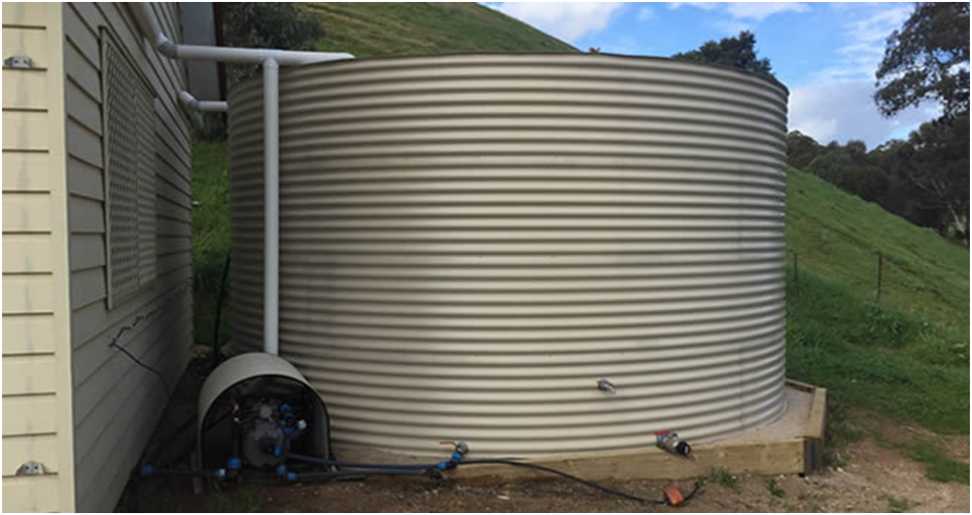In an era where sustainable living is becoming increasingly crucial, the utilization of natural resources offers a promising solution for enhancing environmental responsibility and reducing utility costs. Rainwater tanks, a practical and eco-friendly investment, stand out as an effective means of harnessing nature’s most abundant resource: rainwater. This article delves into the myriad benefits of installing rainwater tanks, emphasizing their impact on water conservation, cost savings, and overall environmental sustainability.
Water Conservation and Management
Efficient Water Use
Rainwater tanks are designed to collect and store rainwater from roofs and other surfaces, allowing homeowners and businesses to utilize this resource for various purposes. By capturing and storing rainwater, these tanks offer a reliable alternative to municipal water supplies, particularly during periods of drought or water restrictions. This proactive approach to water management helps alleviate the strain on local water sources, ensuring a more sustainable and resilient water supply.
Reduced Runoff and Erosion
In addition to conserving water, rainwater tanks play a significant role in managing stormwater runoff. By capturing rainwater before it flows into storm drains, these tanks help reduce the volume of runoff that can contribute to soil erosion, flooding, and water pollution. This process not only protects natural landscapes but also mitigates the risk of damage to infrastructure and local ecosystems.
Economic Benefits
Lower Utility Bills
One of the most compelling advantages of installing rainwater tanks is the potential for significant cost savings. By utilizing collected rainwater for non-potable uses such as irrigation, toilet flushing, and washing, property owners can substantially reduce their reliance on municipal water supplies. This reduction in water consumption translates to lower utility bills, offering both immediate and long-term financial benefits.
Incentives and Rebates
Many regions offer financial incentives and rebates for the installation of rainwater tanks, further enhancing their economic appeal. These programs can offset the initial investment costs and make rainwater harvesting a more accessible option for a wider range of property owners. By taking advantage of these incentives, individuals and businesses can enjoy the benefits of rainwater tanks while minimizing their financial outlay.
Environmental Sustainability
Reduction of Carbon Footprint
Rainwater tanks contribute to environmental sustainability by reducing the need for energy-intensive water treatment processes. When rainwater is used directly for non-potable purposes, it decreases the demand for treated tap water, which in turn lowers the associated energy consumption and greenhouse gas emissions. This reduction in the carbon footprint aligns with broader efforts to combat climate change and promote eco-friendly practices.
Support for Green Landscaping
Rainwater tanks also support sustainable landscaping practices by providing a reliable source of water for gardens and green spaces. By using harvested rainwater for irrigation, property owners can maintain healthy and vibrant landscapes without over-reliance on treated water. This practice not only conserves valuable resources but also contributes to the overall health and resilience of local ecosystems.
Practical Considerations
Sizing and Installation
When considering the installation of a rainwater tank, it’s essential to choose the appropriate size and type based on the specific needs and characteristics of the property. Factors such as roof size, average rainfall, and intended uses for the collected water will influence the optimal tank size and design. Professional installation ensures that the system is correctly integrated with existing plumbing and meets local regulations and standards.
Maintenance and Longevity
Rainwater tanks require regular maintenance to ensure their efficient operation and longevity. This includes cleaning the tank, inspecting filters, and checking for any signs of wear or damage. Proper maintenance not only extends the life of the tank but also ensures the quality of the collected water, contributing to the overall effectiveness of the system.
Conclusion
Harnessing the power of rainwater through the installation of rainwater tanks offers numerous benefits that extend beyond simple water conservation. From reducing utility bills and supporting green landscaping to contributing to environmental sustainability and managing stormwater runoff, rainwater tanks represent a practical and forward-thinking solution for modern water management challenges. By embracing this innovative approach, property owners can make a meaningful impact on their resource use, financial savings, and environmental footprint, paving the way for a more sustainable future.
Have A Look :-
- Carbon Offsetting: A Stepping Stone, Not a Solution
- A Look at the Next Generation of Renewable Energy
- Reduce Paper Use, Befriend Our Planet: Simple Steps for a Sustainable Future

